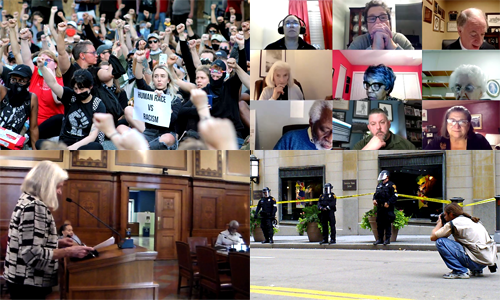Pursuant to the City Code, the Rules and Operating Procedures govern the Board’s management of complaints. The Board has discretion to choose the complaints it wishes to consider. Historically, the Board has considered every properly filed complaint.
Complaints are received through the Intake Coordinator. A case file is opened, a summary is prepared, appropriate document requests distributed to sources, and the file moved to the Executive Director. The Executive Director reviews the file and forwards the case to the Investigators. The assigned Investigator prepares a summary reflecting the allegations, alleged facts asserted by the complainant, police reports and related documents. The summary is reviewed by the Executive Director and if the information appears to support the allegations or appears to be a matter of exceptional concern, the Executive Director authorizes a Preliminary Inquiry. In effect, this is comparable to the finding of probable cause to proceed.
If the evidence does not support the allegation, the summary with a recommendation to dismiss with justification is forwarded to the Board. If a Preliminary Inquiry is conducted, the summary is updated to reflect the findings of the inquiry and the summary is presented to the Board for disposition. A disposition at this stage would be movement into Full Investigation or termination through dismissal. If a Full Investigation yields results that continue to support the likelihood that the allegation(s) are true, a quorum of Board Members may vote to conduct a public hearing on the complaint.
A Hearing Panel is constituted by three members appointed by the Chair to preside over a public hearing. These panel Members may or may not have been involved with the finding of cause necessary to move the complaint through the various stages of investigation. This is potentially problematic as it taints the Members by exposing them to investigative information that may not be material to the charges or may otherwise create a bias toward one of the parties to the complaint. Alternatives to this potential conflict are being explored by the Executive Director.
A public hearing is facilitated by the Solicitor who serves as the presiding Hearing Officer. The Hearing Panel receives the testimony and evidence and may ask questions of any witness. Individual complainants do not have private standing in the proceeding. A Special Prosecutor presents the evidence on behalf of the Executive Director who brings the complaint on behalf of the public interest in the facts alleged by the complaint.
The subject officer is usually represented by the FOP’s attorney, although occasionally an officer has been represented by private counsel. The subject officer’s counsel may cross-examine any witness presented by the Special prosecutor and object to any offering of evidence or line of questioning. Upon conclusion of the special prosecutor’s case, the subject officer may present a rebuttal case. At the conclusion of the hearing, the official record may be closed or held open until such time as ordered by the Hearing Officer and affirmed by the Panel.
Upon closure of the record, the panel retires to deliberate and issues Findings & Recommendations. The standard of proof employed by the CPRB is a preponderance of the evidence, the lowest level of proof, defined as the “degree of relevant evidence that a reasonable person, considering the record as a whole, would accept as sufficient to find that a contested fact is more likely to be true than untrue.” (5 C.F.R. § 1201.56(c) (2)). It is also the standard applied in civil cases, and no matter how defined, retains an intrinsic element of subjectivity.


